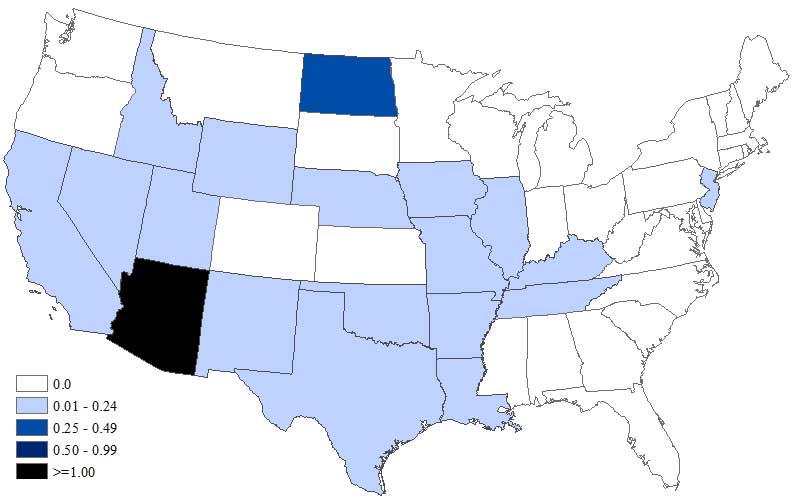Canyon Laker recovering from West Nile Virus
By Shannon Weatherford
Reporter
Lloyd Martinsen and his wife, Ruth, love to spend their summer evenings sitting on the front porch of their Canyon Lake Drive North home, watching the colorful parade of cars, golf carts, joggers and walkers pass by. It was one of those evenings that Lloyd suspects led him to spend the next several months recovering from a potentially fatal illness.
The Martinsens had spent Sunday, August 6, at the Costa Mesa Hilton enjoying the sights and sounds of the Orange County Jazz Festival. Upon waking the following morning, Lloyd knew something was very wrong. Overnight, he had fallen ill with flu-like symptoms accompanied by a high fever, which can be serious enough for a man of 85, but adding to that was severe neck pain which developed into an excruciating headache, numbness in his legs that left him unable to walk and a feeling of general confusion. “I was really out of it and just as weak as a kitten,” Lloyd recalls.
Ruth rushed him to the emergency room at Menifee Valley Medical Center, where he had to be helped into a wheelchair by a nurse just to get from the car into the hospital. Based on his symptoms, an infectious disease specialist was called in to consult and felt that Lloyd was exhibiting signs of bacterial meningitis, an infection of the spinal fluid or the fluid surrounding the brain. Because bacterial meningitis must be treated with antibiotics in the early stages, the specialist indicated a course of strong antibiotics while awaiting the results of various tests.
A week later when the report came in, the results shocked everyone involved – Lloyd wasn’t suffering from bacterial meningitis at all; he had contracted West Nile Virus. The doctor immediately took Lloyd off the antibiotics, which by this time had caused Lloyd’s colon to swell, the result of an infection actually brought on by the antibiotics. As there is no treatment for West Nile Virus, Lloyd and Ruth had no other option but to wait out the illness, hoping that he would recover.
West Nile Virus is often difficult to diagnose because severe symptoms, such as the ones Lloyd displayed, appear in only one out of every 150 infected and can mimic those of other serious illnesses, as they did in Lloyd’s case. In nearly 80 percent of cases, sufferers don’t exhibit symptoms at all. Infection normally occurs within three to 14 days after being bitten by an infected mosquito.
Although the seasonal epidemic is over for the most part now that fall is becoming winter, precautions should still be taken to avoid mosquito bites, including wearing clothing that covers exposed skin and using DEET-based mosquito repellants. Those most at-risk for contracting the illness from an infected mosquito are small children, adults over 50 and those with compromised immune systems.
While still recuperating from the after-effects of the illness as well as undergoing treatment for the infection to his colon, Lloyd says that he is now West Nile Virus-free, and thinks the most likely scenario for having contracted the illness was while enjoying a summer evening right on his own front porch. “We all know that mosquitoes are in abundance in Canyon Lake,” Lloyd says, which is why both he and Ruth plan to take appropriate measures next summer for their evening respites.

